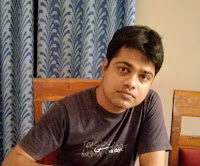Question Paper of MA I Sem. English (Paper I- Poetry)
M.A. Sem. I Examination (Model Question Paper) English - Paper I - Poetry Section - A (Objective Type Questions) Q1. Choose the correct option: 5x2=10 i. Milton' Paradise Lost is: a. an ode b. a lyric c. an elegy d. an epic ii. The Ramayan is a composition by: a. Kalidas b. Valmiki c. Vyas d. Tulsidas iii. Chaucer belongs to: a. 14th Century b. 16th Century c. 18th Century d. 20th Century iv. Coleridge is a: a. Classical poet b. Metaphysical poet c. Neoclassical poet d. Romantic poet v. Zimri is a character of: a. Chaucer b. Shakespeare c. Dryden d. Pope Section - B ( Short Answer Type Questions) Q2. Answer any FIVE of the following questions: 5x7=35 i. Define epic with examples. ii. What do you mean by 'Homeric Simile'. Discuss. iii. Justify the title 'Sundarkanda' iv. Write a note on Chaucer's Monk. v. Discuss the symbolic significance of 'albatross' of The Rime of the Ancient Mariner. vi. Write a short note on Shakespearean sonnet. vii. De...

